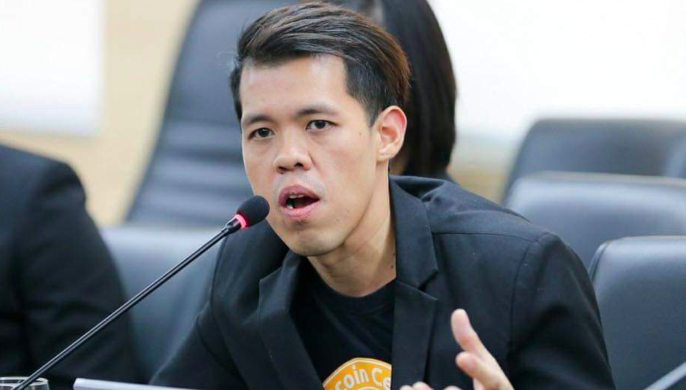
Pakornwut Udompipatskul
When gojek co-founder and CEO Nadiem Makarim joined the government in Indonesia last month, the news brought cheers to the startup community across Southeast Asia. Many expressed hope that Makarim would excel in the new role as the Minister of Education and Culture and will transform the country’s education sector.
While Makarim’s appointment broke the internet, this is not the first time a tech entrepreneur has joined politics/government in the region. Almost eight to nine months before this development, an entrepreneur in Thailand had taken the plunge and won a national election to become a Member of Parliament (MP).
Unlike Makarim, who is part of the ruling party in Indonesia, Pakornwut Udompipatskul, former General Partner of Bangkok-headquartered StockRadars, sits in the opposition in the Parliament. Udompipatskul, who successfully contested in a Future Forward Party (FFP) ticket, finds the new gig more challenging than his previous role at StockRadars, an all-in-one stock analytics and trading platform.
“I think both jobs are challenging but in different ways. At StockRadars, I could freely experiment with things, but in Parliament, it is not easy. There are many limitations to the Parliamentary system. The challenge in front of me is to break the barriers to build something new for my country,” he tells e27.
Udompipatskul was quite active in politics even before becoming an MP. He is a firm believer in democracy and freedom. He feels that democracy and freedom in Thailand are under stress after the latest coup d’etat.
“When FFP started issuing tickets for its members to contest elections, I grabbed the opportunity and decided to give it a shot. I was confident that I could use my experience to take my country to new heights in the age of digital disruption,” he shares.
Thailand follows a bicameral parliamentary system: it has 500 elected MPs (house of representatives) and 250 Senators, who are directly appointed by the military junta. Of the 500 MPs, 350 are District MPs (who won the highest number of votes from each district), and the rest are party-list MPs (contested in a party ticket from around the country). Udompipatskul belongs to the second category.
He is also Vice President of the ‘Committee of Telecommunication and Digital for Economic and Society’, which raises relevant issues, studies them, and sends the summary to the government.
“It is a new experience for me. I have learned lots of things and understood why it is tough and slow to push something in the Parliament,” he adds. “Although it is a difficult job, I am enjoying the new role, and I am very passionate about it. I think it is a good opportunity to learn something new every day.”
As a politician, his role is to help digital businesses to push the boundaries and grow. He argues that the best way to develop or fix any issue is to have someone who understands the problems.
“In the past, we had some MPs with a typical politician’s mindset. They lacked the vision and didn’t understand people’s problems. So, many policies formulated and implemented by the Parliament didn’t achieve the desired results. Plus, politicians are too risk-averse and they don’t want to break the status quo. A typical politician will never try hard to break the glass ceiling to attempt something new,” he shares. “I’m trying to be a politician with a common man’s mindset. As a people’s representative, I am trying to address their pain points.”
According to Udompipatskul, there are some good policies to promote entrepreneurship and boost the startup ecosystem. However, the politicians who formulated these policies lacked the vision and this stunted the growth of startups in Thailand.
Since he joined the Parliament, he proposed several ideas such as matching funds, ‘Grand Challenge’ for startups, open data with open API for the private sector, and how to apply blockchain in various government projects. “It is not something new. Many countries in the world have already done it and proved effective. I am working with my fellow party members to figure out new policies for the digital industry,” he shares.
What are your short-term and long-term goals?
“Well, as I mentioned, for now, I only have legislative power, so my short-term goal is to try to change legislation to promote innovations. In Thailand, we have many outdated laws,” he reveals. “My long-term goal is that if my party wins the next election and forms the government, we will make Thailand a digital innovation hub. I think digital technology can boost the country’s economy and improve people’s lives.”
The post ‘It isn’t easy to experiment with new things as a politician’: Thailand’s entrepreneur-turned-MP Pakornwut Udompipatskul appeared first on e27.